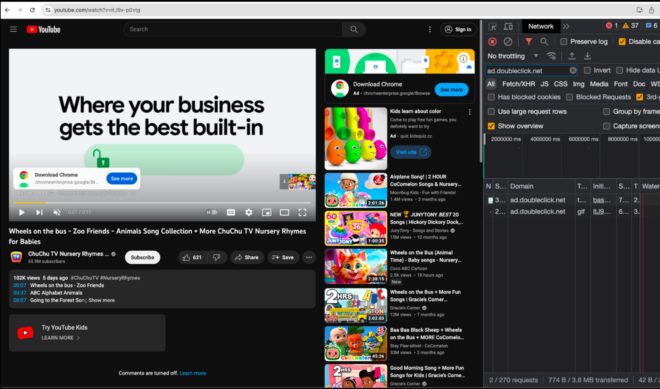An investigation into a potential case of money laundering has triggered complaints from privacy advocates. According to a Forbes report, federal authorities asked Google to turn over viewer data on specific videos as part of an inquiry into a Bitcoin vendor.
Forbes uncovered the federal request after examining court documents that were recently unsealed. According to the subsequent report, authorities solicited viewer data related to videos that has been seen more than 30,000 times. An undercover agent had previously shared the videos with a Bitcoin trader named elonmuskwhm, who was suspected of illegally selling cryptocurrency for cash.
By gathering names, addresses, telephone numbers, and user activity of YouTube accounts, as well as the IP addresses of the videos’ viewers, authorities could obtain insights about elonmuskwhm’s identity. But some privacy advocates have contended that the request violated the civil liberties of video viewers who may have had no relationship with elonmuskwhm.

Subscribe to get the latest creator news
“What we watch online can reveal deeply sensitive information about us—our politics, our passions, our religious beliefs, and much more,” Electronic Privacy Information Center Senior Counsel John Davisson told Forbes. “It’s fair to expect that law enforcement won’t have access to that information without probable cause. This order turns that assumption on its head.”
According to the court documents, authorities requested that Google hand over viewer data for a period that ran from January 1-8, 2023. Forbes could not confirm whether Google complied with the demand, though a spokesperson for the tech giant clarified its practices related to data security.
“With all law enforcement demands, we have a rigorous process designed to protect the privacy and constitutional rights of our users while supporting the important work of law enforcement,” the spokesperson told Forbes. “We examine each demand for legal validity, consistent with developing case law, and we routinely push back against over broad or otherwise inappropriate demands for user data, including objecting to some demands entirely.”
Google has taken some steps to prevent the privacy of user data. A policy introduced last December, for example, shortened the window of availability for location data.














